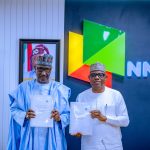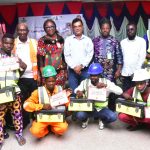Feature/OPED
X-Raying the Hidden Leadership Drive in Anioma-Born Tonna Okei
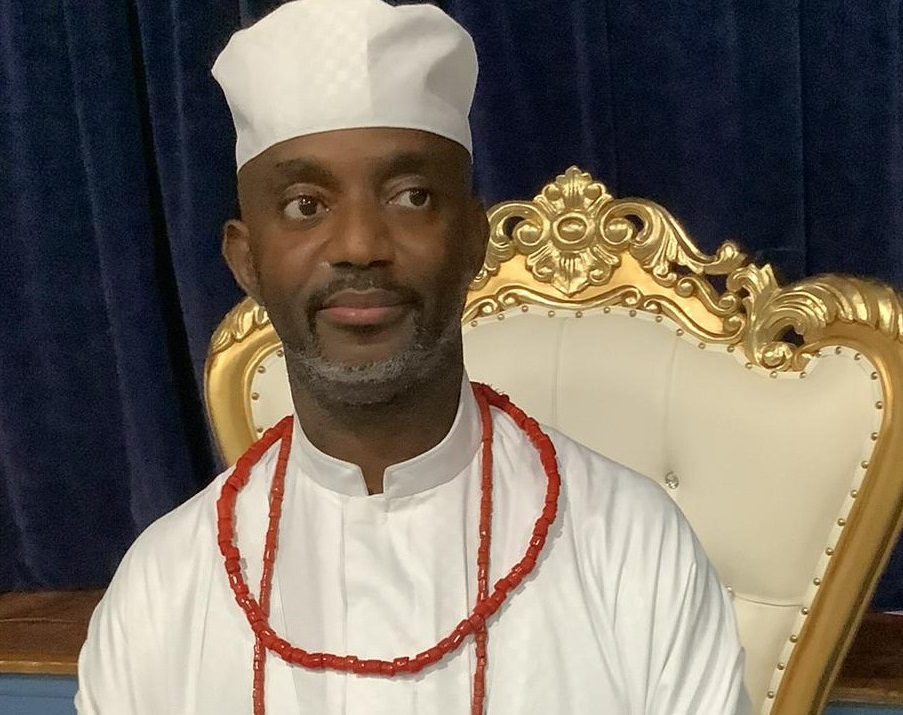
By Jerome-Mario Utomi
Anioma, loosely translated as good land, is situated in Delta State and precisely forms the Delta North Senatorial District in the present-day Delta State, South-South geo-political zone of Nigeria.
The people of Anioma are predominantly Igbo-speaking. In terms of population and landscape, Anioma nation as it is usually referred to could be likened to a dot in the map of Nigeria. But the people, in material terms, have through hard work, planning and improvising, established themselves in all critical sectors-finance, science/technology, sports, education and most importantly public leadership.
Also worthy of underlining is the fact that Anioma people daily manifest signs of a people that have left behind third-world challenges of illiteracy and poverty, to become a successful centre for the dissemination and distribution of the best human capital resources across the nation and beyond.
While this author celebrates these identified as well as yet-to-be-identified excellent human capitals of Anioma origin scattered all over the globe, assisting organizations and development agencies make far-reaching decisions, this piece on its part, specifically acknowledges the silent, salient and outstanding public leadership exploits at the global stage of a yet to be celebrated Ekuku Agbor born, Grand Knight Emeritus, President of the Organization of African Unity South Carolina, a Member of the Board of Trustee of the Knights of Columbus, a Notary Public, a Team Leader, Community leader, cultural enthusiastic and, Quality Assurance Bureau of the South Carolina Department of Health and Human Services.
His resounding clamour for good governance and creative approach to people-focused public leadership recently came to mind after reading a news report on how the city of Columbia, headquarters of South Carolina, United States of America (USA), came alive as Tonna Okei led Pan African Inter-Nation, an umbrella socio-cultural organization of all Africans resident in South Carolina, held its second edition of Jollof Rice Competition In South Carolina.
Aside from being an annual event by Okei’s African residents in South Carolina, USA, to among other objectives celebrate the African continent’s rich cultural heritage, particularly in the area of food, very newsy about this year’s gathering is that it had the Ghana Ambassador to the US, Her Excellency, Madam Ambassador Hajia Alima Mahama, who was on a state visit to South Carolina, in attendance among other dignitaries, and fundamentally provided an avenue for bilateral talks between the members of the South Carolina Organization of Africa Unity (OAU), Pan African Inter-Nation and the Ghana Embassy in the United States of America.
Beyond this latest event, there are of course more significant and critical leadership attributes daily displayed by Okei that amply qualify him as a nationalist and good governance advocate whose efforts must not be allowed to go with political winds uncelebrated but harnessed for the overall interest of the nation.
Adding context to the discourse, Knight Sir Tonna Celestine Okei was born on January 16, 1975, in Surulere, Lagos state, a few days after the Udoji commission pay increase started and his mother collected her first payment and thus named him Tonna (Praise God). Tonna was born in the family of Lady Felicia Okei and Barrister Sir George Okei, a former Commissioner of Local Government and Chieftaincy Affair in the now-rested Bendel state.
He attended Ika Grammar School, Agbor, Delta State, Government College Eric Moore, Command Day Secondary school, Army Cantonment Ojo Barracks Lagos and Government College Ughelli, the University of Benin, Georgia State University and the University of South Carolina graduating with an Associate in Social Works, Bachelor of Social Work and Master of Social Work. He holds an Oracle DBA 10i certificate in Database management and is a UNIX-certified Manager, he holds an associate in public management. Tonna is a Behavioural Analyst and Quality Assurance guru who has lived in the United States for about 17 years (2007).
Despite this long sojourn in a foreign land (United States of America), he is daily consumed with how to make Agbor kingdom, Delta state and the Nation Nigeria, a geographical entity, where peace, justice and holistic and sustainable development reign supreme. His promotion and adoration for African culture is not only exemplary but legendary.
As part of his persistent resolve to foster collaboration, attract development and international respect to Delta state and Nigeria as a whole, Tonna has, at different times and places met and discussed with the President of Ireland, Mary McAleese, addressed South Carolina Bishop conference, hosted the Major of Accra, Ghana, endorsed then senatorial candidate but now senator Tameika Dorsett of the United States of America, received in audience the Sheriff of the Richland County, Leon Lott, Visited the President of the University of South Carolina, addressed South Carolina Bishops Conference, addressed the Mayor and Council, Eastover Council, hosted/honoured by the SC Legislative Black Caucus, received the Mayoral Community leadership award, advocated for stricter gun laws in the United States, visited the Irish Deputy Senate President in the company of the former First Lady of Edo State, Mrs Eki Igbinedion among others.
Again, in keeping with his development-oriented culture, Tonna, a detribalized Nigeria, who is married to Mrs Oluwatoyin Okei (Yeye Asoju Oba), from the South Western Nigeria and blessed with six children and a granddaughter, recently brokered/ facilitated a meeting between key political figures in Delta state and management of South Carolina University, aimed at seeing the Delta state-owned Universities in Asaba and Agbor, establish affiliate relationship with the Faculty of Education, South Carolina, USA, where anyone graduating from Department of Education in Asaba or Agbor would already have passed their state exams in South Carolina and qualify for teaching job in South Carolina.
Asked by newsmen to give insight as to what inspired such a move, Tonna responded that; there is an acute shortage of teachers in South Carolina. So, the aim here is to accommodate the State Teacher Certificate into the curriculum in Asaba and Agbor. So, what does that mean? If you are graduating from the Department of Education in Asaba or Agbor, you have already passed all the certifications in South Carolina. So, when you graduate from the Department of Education in Asaba or Agbor, you are employed in South Carolina. Do you know what that means for Asaba and Agbor? He queried.
He further argued that with such a mutual relationship with South Carolina in place, the students in West Africa will want to go to Asaba and Agbor because they know that when they graduate from the Education Department, they already have a job in South Carolina waiting for them. So, that is one of the major factors that will make Asaba and Agbor the centre of education in West Africa.
Okei observed that it is going to make the University sustainable. That would make those two universities sustainable. They would not need to depend on the governor as any parent in West Africa, when they hear of this information, they can be sending their kids to Asaba and Agbor because when they graduate, they already have a job waiting for them.
According to him, every year, South Carolina goes to Romania, South Africa, and non-English speaking nations to employ teachers and yet, we have teeming youths in Asaba, in Agbor, in Delta state. You know what that means for Anioma. If your brother or nephew can go to education department in Asaba and Agbor and they graduate, there’s a job already waiting for them in South Carolina. That is going to be a landmark project, he concluded.
As someone laced with unwavering commitment to, and respect for the traditional stool of Dein, the revered paramount ruler of Agbor kingdom and African culture, Okei was visibly present when His Majesty (HRM) Dein, Doctor Kiarekugbei was honoured in faraway United States of America by South Carolina legislative for his good works, for Agbor and the world at large.
In the area of security, it was in the news that when Rt Hon. Festus Okoh, Member of the Delta state House of Assembly (DTHA), visited the United States for the Agbor Convention 2023, Sir Tonna Okei went with him to the Sheriff of Richland County where they discussed how the sheriff can assist Delta state increase capacity in Security Network, diplomacy and respect for rule of law. The sheriff reportedly expressed to the delegation, his willingness to work with and render such service to Delta State as soon as the necessary invitation is received from the state government and other relevant agencies.
Also, in the area of legislative matters, Tonna reportedly engineered a meeting with the South Carolina Legislative arm where the Hon. Chuky Dandy met with the Chairman of the State Legislative Office. They reportedly discussed areas of mutual benefits where Delta State House of Assembly members can come down to South Carolina for a retreat or to observe them doing plenary; and discuss how they can add value to Delta state legislature in terms of what it means to be a legislator and how they can use the legislative arm in South Carolina to assist Delta in terms of education, science and technology.
For example, for most of the science equipment, they no longer need or have in surplus, they can adopt Delta State as a twin city where they offer Delta state equipment for free using OAU as a platform. They agreed that they would sign a Memorandum of Understanding (MOU) when the state legislature visits South Carolina.
In recognition of their contribution to the black race in the United States, a special guest of honour and representative of the Haiti community in South Carolina at a recent function in the United States declared that Tonna be known and addressed as the Kwame Nkrumah the second, a motion which was wholeheartedly adopted.
Now, here at home, looking at the above efforts and selfless contributions and celebration of this citizen by the people of other nations, this piece holds the opinion that it will be highly rewarding if he is consulted or better still, drafted by the state or the nation into mainstream responsibility to assist the people of Delta state and Nigeria at large find sustainable solution to the present hydra-headed leadership predicament afflicting the nation. This, in my view, should be done not for political reasons but for the survival of our democracy and the people.
Jerome-Mario, a media specialist, writes from Lagos Nigeria. He can be reached via jeromeutomi@yahoo.com/08032725374
Feature/OPED
Why President Bola Tinubu Has the Edge in Retaining Power in 2027
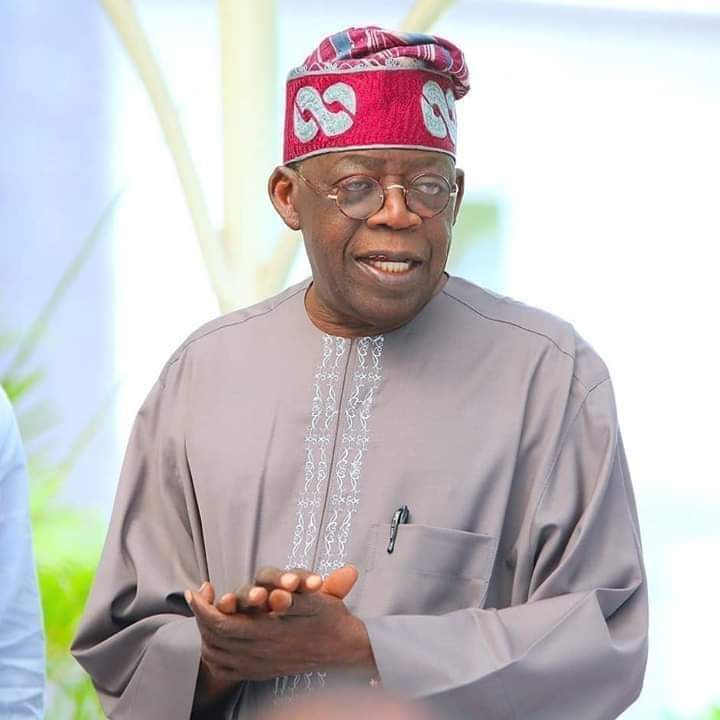
By Kenechukwu Aguolu
As the year 2027 draws closer, political manoeuvrings and calculations are already underway across Nigeria. The landscape is expected to shift, with new alliances and coalitions forming among political actors and parties. However, in my view, the chances of the current administration retaining power in 2027 remain high, and several compelling reasons support this assertion.
First and foremost, the All Progressives Congress (APC), the party currently in power, stands as the most formidable political force in the country. The APC boasts an unrivalled structure, a stable leadership, and the highest membership among all political parties. With the largest number of serving governors and National Assembly members, the party is firmly entrenched in all corners of the nation. These factors alone give the APC a significant advantage as it gears up for the 2027 presidential elections.
Under the leadership of President Bola Tinubu, the current administration has displayed a deep sense of patriotism and a clear vision for Nigeria’s future. While the reforms introduced by the government came with initial challenges, these difficulties are gradually easing, and the results are becoming increasingly evident. Prices of goods and services are steadily dropping, and the Naira is beginning to show signs of recovery.
The government’s efforts to diversify the economy are also bearing fruit, with initiatives such as the revival of the Ajaokuta Steel Company and ongoing reforms in the mining sector. By 2027, the dividends of these economic reforms will be more apparent, and the public will be able to feel their positive impact. These successes will work in the administration’s favour and could solidify the APC’s hold on power.
Infrastructure and security have been at the forefront of the government’s priorities. Significant improvements in power generation have already been made, and efforts to tackle insecurity have begun to show positive results, albeit gradually. Furthermore, the government is investing heavily in road construction, including vital projects like the Lagos-Calabar Expressway.
These infrastructural developments are not just for show—they will stimulate economic activities across the country, create jobs, and enhance the living standards of Nigerians. If these trends continue, it will be hard for any political opponent to deny the progress made under the current administration.
Perhaps the most critical factor in the APC’s favour is the leadership of President Tinubu himself. With his personality, widespread followership, and experience, he stands as a political giant in Nigeria. His leadership has been marked by a strong sense of purpose and determination, and his vast network of supporters spans across different regions of the country.
While some may argue that time will tell who will emerge as a viable challenger to President Tinubu, it’s difficult to imagine any politician currently being touted as a credible candidate who could match his national appeal and charisma. The nature of Nigerian politics means that any potential challenger would need to command significant nationwide support to pose a real threat to the APC’s grip on power.
Looking ahead to the 2027 presidential election, I believe it will be much easier for President Tinubu to secure re-election than it was in 2023. His leadership performance, coupled with the robust support of the APC, places him in a strong position for victory. While unforeseen events may shape the political landscape over the next few years, the factors already in play suggest that the current administration is well-positioned to retain power.
Feature/OPED
Collaboration Made Easy Using a Work Management Platform

By Firas Jadalla
Effective collaboration between security operators, teams, and other departments is essential for the smooth functioning of any organization. However, as organizations grow in complexity, it becomes increasingly challenging for teams to coordinate. Factors such as staffing shortages, high turnover rates, and outdated collaboration tools exacerbate these challenges.
When staff rely on multiple disconnected tools for dispatch, reporting, and task tracking, operations often become fragmented, leading to delays and gaps in communication. In critical areas like safety and security, these inefficiencies can have serious consequences.
Work management solutions bridge these gaps by managing, tracking, and documenting activities, streamlining processes, and fostering real-time collaboration. Built specifically for security teams, these solutions enhance communication, boosts productivity, and improves overall operational efficiency through workflow automation.
Organizations in Africa and the Middle East operate in high-security environments where seamless collaboration is essential. A robust work management platform enables swift response and coordination across complex operational landscapes.
This growing need for integration is driving more organizations to align their security and IT departments. According to a recent Genetec report, 78% of end users in the META region indicate that these departments now work collaboratively, reflecting a shift toward a more unified security approach.
Overcoming barriers to effective collaboration
Over time, many organizations accumulate a patchwork of databases, spreadsheets, and standalone systems to communicate, create reports, and track activities. Some still rely on outdated paper-and-pen processes, which aren’t only time-consuming but also prone to errors. These disjointed methods hinder information sharing and coordination.A digital work management platform consolidates these fragmented systems, offering teams a unified view of activities accessible on both desktop and mobile devices. To take full advantage of their security system data, security teams need to consider more than a generic work management solution.
An ideal work management solution for security teams should accommodate security activities such as guard tours, patrols, and maintenance inspections. It should also seamlessly integrate with existing security systems. For instance, a video operator should be able to create a work request with an attached camera snapshot and route it to the appropriate team in just a few clicks. To ensure trustworthy audits and reporting, the work management system should be built with strong cybersecurity measures and ensure that data can’t be manipulated after the fact by applying blockchain principles.
Benefits of work management systems
Implementing a work management system can transform security operations in several ways:
- Improved Communication: Teams gain real-time visibility into task progress, responsibilities, and pending assignments. Updates and alerts can be shared seamlessly to request assistance or provide situational awareness.
- Enhanced Collaboration: Every team member contributes to shared goals rather than isolated tasks. Custom API integrations can connect with other systems, such as employee apps, further fostering teamwork.
- Time Savings: Built-in reporting tools automate activity logs and compliance audits, freeing up time for other critical tasks.
- Operational Efficiency: Routine tasks, incident management, and resource tracking are streamlined. Tasks are assigned to personnel with the appropriate skills, tools, and knowledge, ensuring readiness and precision.
- Workflow Automation: Automations simplify recurring tasks, such as setting reminders, generating reports, or notifying team leads when new requests are added.
- Resource Optimization: Features like work ticketing and asset management enable efficient resource allocation and management of internal and external requests.
- Mobile Support: Field officers benefit from mobile apps that enhance situational awareness, communication, and access to standard operating procedures on the go.
Today, governments in Africa, for instance, are heavily investing in smart security solutions as part of their national digital transformation strategies. A centralized work management platform not only supports these efforts but also helps businesses align with evolving security regulations, ensuring compliance and streamlining reporting processes.
Tips for successful implementation
Every organization has unique workflows, so selecting a customizable work management system is crucial. It’s important to choose a solution that’s customizable and intuitive to minimize the need for extensive training.Integration is another key factor.
A platform that deeply integrates with your existing security ecosystem provides a cohesive view of operations and eliminates the need for manual data transfers or redundant processes.A well-designed work management system can break down silos, empower teams, and boost efficiency. To ensure a successful deployment, adopt a lean and agile approach: start small and gradually incorporate more features as your team becomes comfortable with the platform.
With initiatives like Kenya’s Konza Techno City, Nigeria’s Eko Atlantic City and Abuja Centenary City, organizations are increasingly integrating AI-driven security and IoT-enabled monitoring into their operations. A work management platform with automation capabilities supports these advanced security frameworks.
Firas Jadalla is the regional director for Middle East, Turkey & Africa at Genetec Incorporated
Feature/OPED
From Struggle to Stability: How FinTech is Helping Nigerian SMEs Overcome Cash Flow Challenges
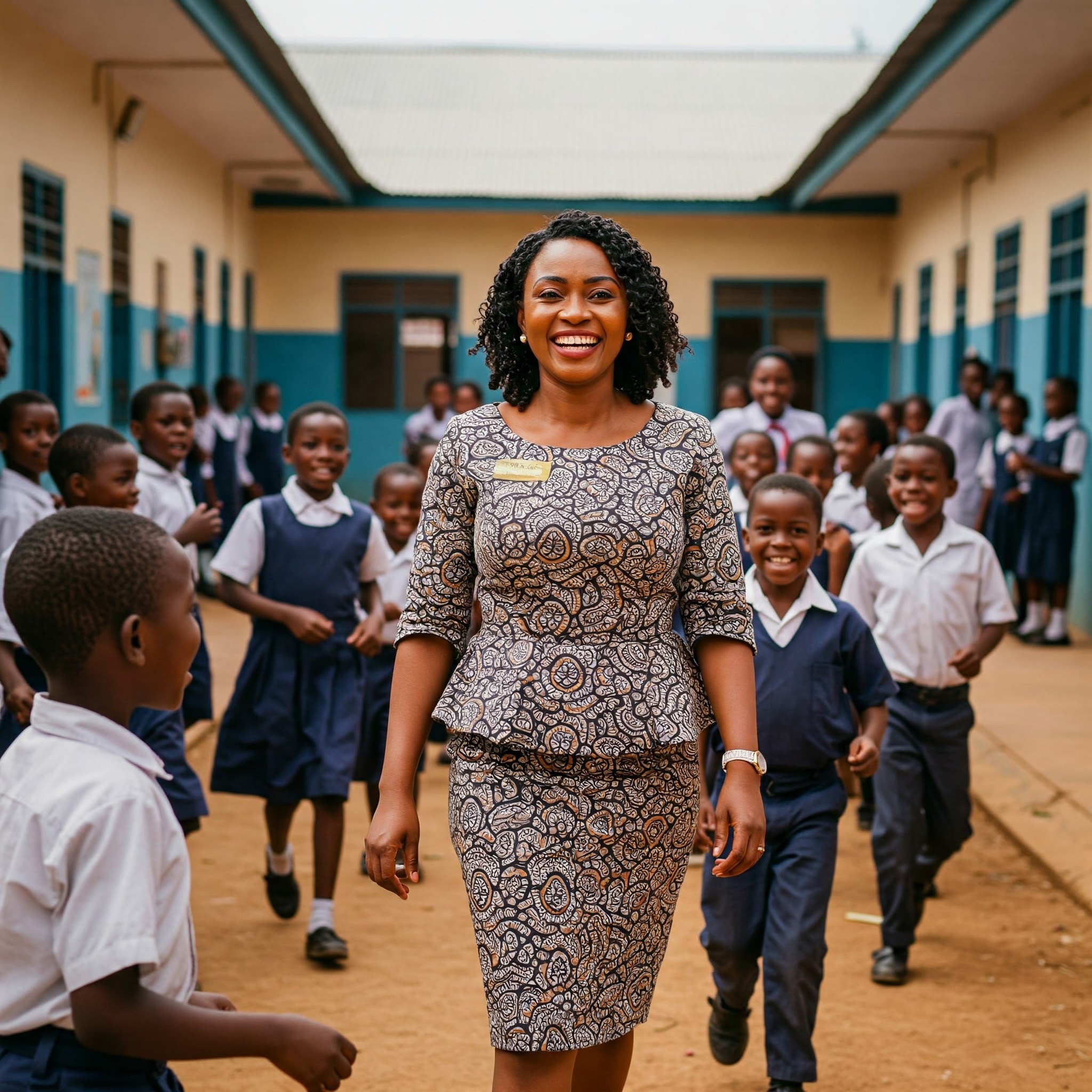
When Mrs Agbaje started her school in Ibadan twelve years ago, she didn’t envision a tech-enabled future. Her dream was simple—provide affordable, quality education to children in her community. For the most part, she made it work. But as the school grew, a new challenge took root. It wasn’t infrastructure. It wasn’t teacher retention. It was something far more basic: getting paid.
Each new term brings the same pattern. Parents promise to pay fees “by next week.” Some follow through. Many don’t. As the term wears on, Mrs Agbaje finds herself juggling spreadsheets, reminder texts, and awkward conversations in car parks or at school gates. Meanwhile, salaries must be paid, books restocked, diesel bought. More often than not, she dips into personal savings to keep things running.
Her story is common across Nigeria. Small businesses—whether they’re schools, salons, logistics firms, or cooperative groups—are constantly navigating the emotional and financial toll of delayed payments. And it’s not just a matter of inconvenience. A recent study by MacTay Consulting found that Nigerian SMEs wait between 60 to 120 days on average to receive payment for services or products already delivered. That kind of delay is more than a hiccup. It threatens livelihoods. It blocks growth. It’s a silent killer.
For Chuks, who runs a car hire service in Enugu, the issue is tied to his bigger corporate clients. They insist on “net 30” or “net 60” terms—industry-speak for “we’ll pay you in a month or two.” That might be manageable for a large fleet with strong cash reserves, but for someone like Chuks, every week matters. With fuel prices rising and maintenance bills stacking up, he’s often forced to park cars because he doesn’t have the cash to fix them—even when work is lined up.
What links these stories is the reality that small businesses operate in a system where money is constantly in motion but rarely on time. Customers often mean well, but their own financial instability creates a domino effect. And the existing tools to manage payments—handwritten ledgers, POS machines, WhatsApp reminders—were never designed for structure. They’re patched solutions to a systemic problem.
Even digital banking, for all its advancement in Nigeria, hasn’t solved this issue. Many SMEs still operate informally, managing finances through personal bank accounts or apps not tailored to business needs. The result is a messy web of follow-ups, reconciliations, and emotional strain. Business owners become debt collectors, chasing down what they’ve already earned, time and time again.
What’s often missed in conversations about entrepreneurship is just how deeply this problem cuts. Payment delays mean rent can’t be paid on time. It means holding off on hiring a new staff member, or letting go of a part-time assistant. It means saying no to growth opportunities, not because they’re not viable, but because the cash flow isn’t predictable enough to take the risk.
And when you zoom out, the implications are national. Small businesses make up over 90% of enterprises in Nigeria. They contribute nearly half of the country’s GDP and employ a significant portion of the workforce. Yet, their greatest enemy isn’t market competition—it’s irregular income. This is a structural inefficiency that deserves far more attention than it gets.
Slowly, however, change is beginning to show. A quiet revolution is underway—one where technology is stepping in not as a trend, but as a tool for financial stability. More SMEs are beginning to explore digital solutions that streamline payments and reduce friction between businesses and customers.
Among these solutions is PaywithAccount, a new tool launched by Nigerian fintech company OnePipe. Designed specifically for businesses with recurring payments—schools, cooperatives, service providers—it allows them to automate collections directly from customers’ bank accounts. With full consent and transparency, payments can be scheduled, reducing the need for repeated follow-ups or awkward reminders.
For Mrs Agbaje, this has made a significant difference. Parents receive structured payment plans, reminders go out automatically, and debits happen based on prior agreement. She now spends less time tracking who has paid and more time planning curriculum upgrades and engaging with teachers.
The benefit isn’t just financial—it’s emotional. When business owners don’t have to chase payments, they gain time, clarity, and confidence. They can plan ahead, restock inventory, or finally invest in that expansion they’ve put off for years. And for customers, the experience feels more professional, more trustworthy. Everyone wins.
Technology won’t solve every problem for Nigerian SMEs. But smart, well-designed financial tools are starting to remove some of the biggest roadblocks—quietly and effectively. And that’s the point. The best systems aren’t flashy. They work in the background, reducing stress, restoring dignity, and enabling business owners to focus on what truly matters.
For Ope Adeoye, founder of OnePipe, the issue is personal. “Every Nigerian knows someone who runs a business—a cousin, a friend, a neighbour. When they suffer from late payments, it affects whole families and communities. Fixing this isn’t just a business goal—it’s a social one.”
In a country as dynamic and entrepreneurial as Nigeria, the challenge is rarely about lack of ideas. It’s about systems that help those ideas survive. And one of the most overlooked systems is the way money flows—or fails to.
As more SMEs embrace tools that put payment on autopilot, a future of stability—rather than constant survival—starts to feel possible. And in a nation powered by small businesses, that kind of shift could move mountains.
-

 Feature/OPED5 years ago
Feature/OPED5 years agoDavos was Different this year
-
Travel/Tourism9 years ago
Lagos Seals Western Lodge Hotel In Ikorodu
-

 Showbiz2 years ago
Showbiz2 years agoEstranged Lover Releases Videos of Empress Njamah Bathing
-

 Banking7 years ago
Banking7 years agoSort Codes of GTBank Branches in Nigeria
-

 Economy2 years ago
Economy2 years agoSubsidy Removal: CNG at N130 Per Litre Cheaper Than Petrol—IPMAN
-

 Banking2 years ago
Banking2 years agoFirst Bank Announces Planned Downtime
-

 Sports2 years ago
Sports2 years agoHighest Paid Nigerian Footballer – How Much Do Nigerian Footballers Earn
-

 Technology4 years ago
Technology4 years agoHow To Link Your MTN, Airtel, Glo, 9mobile Lines to NIN












